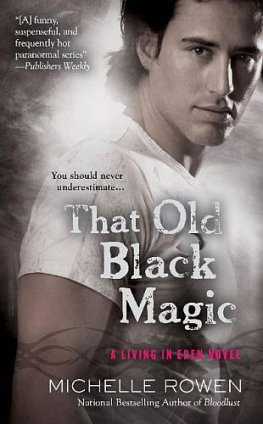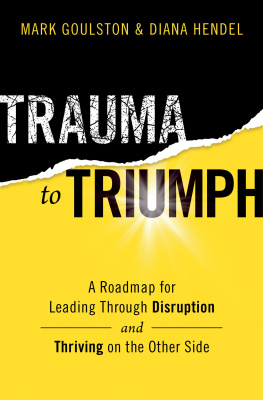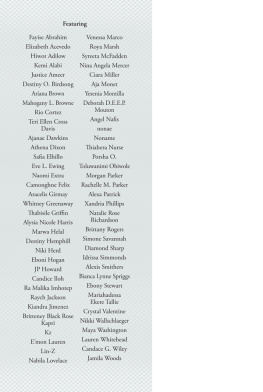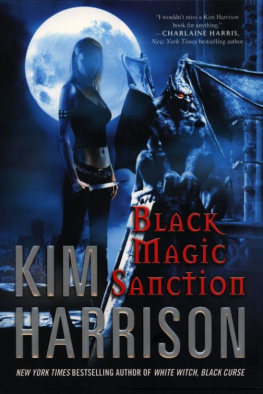Chad Sanders - Black Magic: What Black Leaders Learned from Trauma and Triumph
Here you can read online Chad Sanders - Black Magic: What Black Leaders Learned from Trauma and Triumph full text of the book (entire story) in english for free. Download pdf and epub, get meaning, cover and reviews about this ebook. year: 2021, publisher: Simon & Schuster, genre: Home and family. Description of the work, (preface) as well as reviews are available. Best literature library LitArk.com created for fans of good reading and offers a wide selection of genres:
Romance novel
Science fiction
Adventure
Detective
Science
History
Home and family
Prose
Art
Politics
Computer
Non-fiction
Religion
Business
Children
Humor
Choose a favorite category and find really read worthwhile books. Enjoy immersion in the world of imagination, feel the emotions of the characters or learn something new for yourself, make an fascinating discovery.
- Book:Black Magic: What Black Leaders Learned from Trauma and Triumph
- Author:
- Publisher:Simon & Schuster
- Genre:
- Year:2021
- Rating:4 / 5
- Favourites:Add to favourites
- Your mark:
- 80
- 1
- 2
- 3
- 4
- 5
Black Magic: What Black Leaders Learned from Trauma and Triumph: summary, description and annotation
We offer to read an annotation, description, summary or preface (depends on what the author of the book "Black Magic: What Black Leaders Learned from Trauma and Triumph" wrote himself). If you haven't found the necessary information about the book — write in the comments, we will try to find it.
Chad Sanders: author's other books
Who wrote Black Magic: What Black Leaders Learned from Trauma and Triumph? Find out the surname, the name of the author of the book and a list of all author's works by series.
Black Magic: What Black Leaders Learned from Trauma and Triumph — read online for free the complete book (whole text) full work
Below is the text of the book, divided by pages. System saving the place of the last page read, allows you to conveniently read the book "Black Magic: What Black Leaders Learned from Trauma and Triumph" online for free, without having to search again every time where you left off. Put a bookmark, and you can go to the page where you finished reading at any time.
Font size:
Interval:
Bookmark:
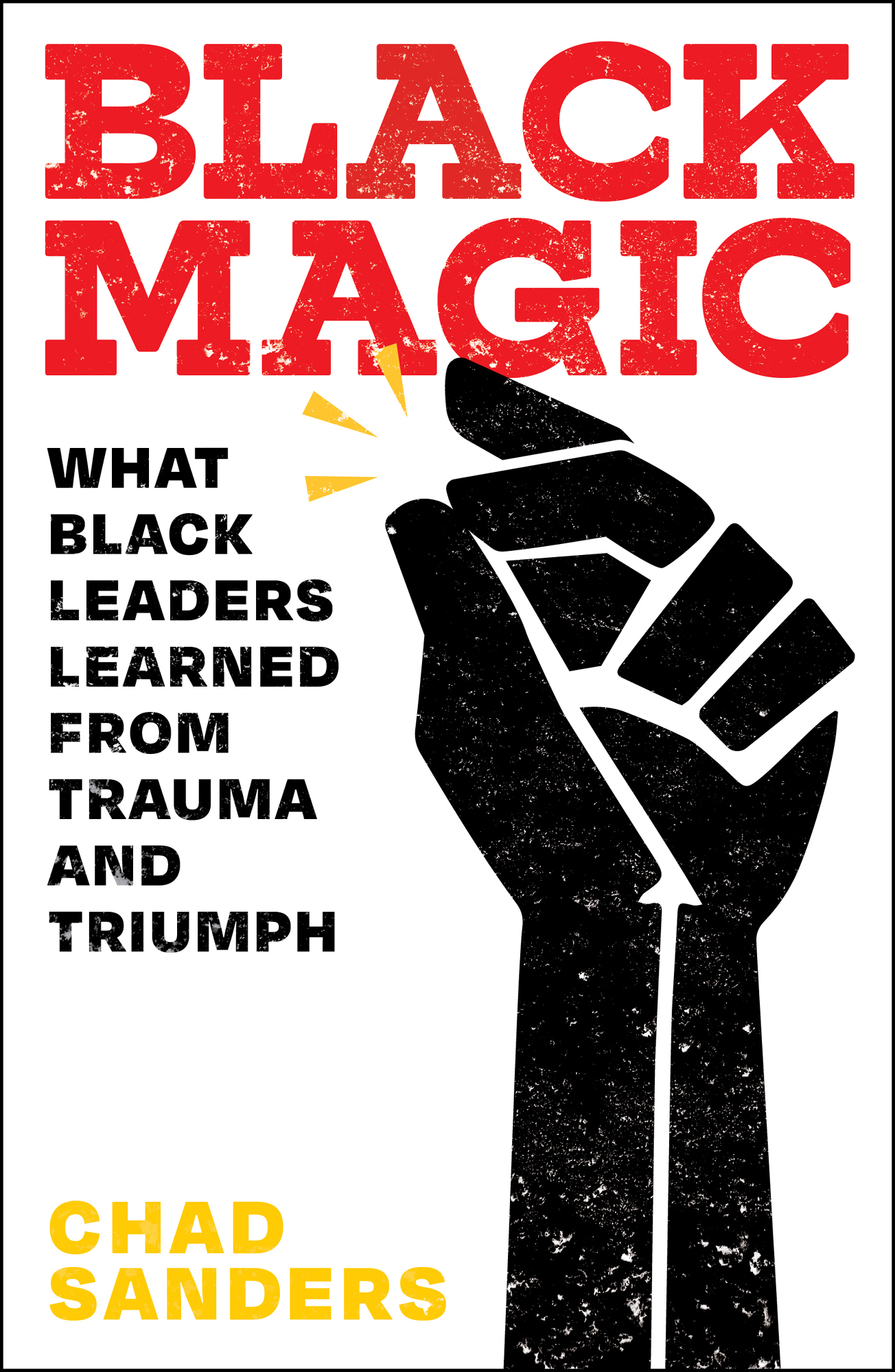

For every wandering, Black dreamer. I am you.
For my parents, Monice and Bruce. Thank you for everything you poured into every single day. You showed us the importance of family, sacrifice, and independent thinking. I love you.
For my sister, Shannon. Thank you for teaching me how to read and write. But more, thank you for showing me how to create. I love you.
For my nephew, Fox. Thank you for inspiring me. I pray that you and your biggest dreams find each other. I love you.
For Juliana. Thank you for being creative. Thank you for being real. Thank you for being free. I admire you. I love you.
For Granna. Thank you for your kindness and wisdom. Thank you for Sweet Ginger. I love you.
For Aunt Susan. Thank you for your zen. Thank you for talking to me about bugs. I love you.
For my cousin, Trooper. Thank you for being a brother in every sense of the word. I love you.
For my cousin, Rachel. Thank you for being a sister in every sense of the word. I love you.
For Aunt Onita. Thank you for showing me artistry as a lifestyle. I love you.
For Uncle Butch. Thank you for your sense of humor. I love you.
For Aunt Pam. Thank you for community. I love you.
For the spirits of Grandma Maggie, Granddaddy ONeal, Grandad Hodges, Aunt Sandra, Alicia, and Young June. For the spirits of every Black person gone too soon. Please watch over me.
I remember the day I realized I couldnt play a white guy as well as a white guy. It felt like a death sentence for my career. I was twenty-three and working at Google in lily-white Silicon Valley. I was wearing a blue-checkered button-up shirt and khakis.
All my life Id been told by white teachers in mostly white classrooms that my worth would be determined by my hard work and dedication. But as a Black boy, then a Black man, my experience outside those classrooms spoke more acutely: Whiteness outweighed hard work and dedication, as well as merit, potential, and vision, in a corporate environment. Whiteness was its own form of prestige trumping all skill sets and accolades.
If I wanted to be successful, Id have to learn to emulate and genuflect to whiteness.
I had just left the safety of Morehouse College. For those four years at Morehouse, I never had to clench my teeth while an overzealous bro shouted nigga over rap lyrics or walk out of a classroom when a ham-fisted teacher explained the Middle Passage as an unfortunate but economically efficient way of transporting cargo. No, those were high school problems for me. And they are dwarfed by the much more horrific problems of police violence, mass incarceration, crippling poverty, and the myriad systemic and incidental race crimes against Black people that occur daily. But it still sucked.
At Morehouse I felt safe and comforted in an environment where nearly everyone was Black. There were other forms of prejudice and competition that created hierarchy, like money, Greek organizations, and lingering skin-tone politics. But none of these loomed as ominously and constantly as race had in the mostly white classrooms where I was taught in grade school and then, later, in the mostly white offices where I stewed in the corporate world. At Morehouse and our sister school, Spelman, I was protected from the domineering nature of whiteness in a way that allowed me to stretch into my identity and find my own voice and ways of thinking. For the first time, I felt safe from judgments and microaggressions that seemed to lurk in every conversation outside those walls.
I believed that safety and comfort in my own skin would travel with me after college. I had context now. I knew my place in the universe and would not be shaken.
I was wrong.
I landed at Google with a thud. It was my first job. I understood my gig. I was organized and methodical enough to execute my duties as an associate in the companys lower rungs. But I felt like a cog in a corporate machine. I was bored and unsatisfied and desperately seeking purpose. I wanted to move up fast. I wanted to be seen. I wanted to be celebrated.
I observed that the fastest climbers, or even those just able to avoid the companys swift ax for underperforming talent, found their advantages socially. The climbers formed relationships with decision makers on a personal level. Every meeting, team offsite, and dinner was full of white colloquialisms and privileged talkof international travel or some folk concert in San Francisco coming up that weekend. Company culture was a constant celebration of whiteness from my perspective. Ones ability to join in on the party, whether authentic or contrived, at least partially determined ones trajectory in the company. There quickly formed a divide between those who could and those who couldnt fit in that roughly overlaid the companys color lines. In my observation, those who couldnt were deemed cultural misfitsnot Googly enough. I saw several of those people let go, some of whom were my close friends who had attended HBCUs (historically Black colleges and universities) like I had.
This was Googles culture, but it was not unique. In Googles 2019 Annual Diversity Report the company reported that only 3.3 percent of Google employees self-identified as Black. The technology and finance industries are most notorious for their whitewashed cultures, but wherever you find capitalism and prestige, you will find cultural exclusivity.
I was perceptive enough to recognize the premium placed on assimilation, but too naive to see that its returns were limitedand presented risk to my mental health and self-esteem. So I flailed, awkwardly trying to emulate whiteness. I changed my wardrobe. Hence the blue-checkered button-up shirt and khakis. I reached deep into my childhood memories to pull out a harmless and convivial bro-y cadence Id crafted in a majority white public high school to survive in white classrooms. I showed up alone to parties to avoid intimidating white peers with the presence of my Black friends. I rushed to immerse myself in white culture. I listened to white music. I made up stories of extravagant family holidays to faraway places to fill in the blanks, trying to make up for the space between the white world and me. It was ugly. Judge me. I was twenty-three and trying to keep my job.
I got what I wanted. I was included, but it came at a cost. Once I was technically in the world of which I had so badly wanted to be a part, I was at the bottom of the totem pole. These were, after all, environments designed to value whiteness above everything else. I was lonely because I pushed away friends who I thought werent allowed in the white world. I was more dejected than ever, both ashamed for having abandoned the most robust parts of my identity and constantly carrying the unbearable weight of imposter syndrome. My discomfort bore out in my work. I performed well below expectations I had for myself, distracted by trying to walk the tightrope of being Black enough to look myself in the mirror but white enough to be seen.
It was exhausting.
So I quit. Not my jobbut the entire charade of trying to be someone else, a culture fit. Holding up a mask of whiteness became too heavy a burden. It was stunting my growth professionally and personally. I wasnt being promoted or celebrated at work. And I had isolated from my own people.
With few other options, I resigned to being myself. In meetings I reverted to methods Id learned not in classrooms, but at the dinner table with family or the barbershop, concrete basketball courts, the Morehouse College cafeteria, and Black Baptist churches. My tone became unflinching, sometimes even brash. I called colleagues and clients out for condescending or manipulative behavior. I told the truth when I felt micro-aggressed, silenced, or othered in work environments because of my race.
Font size:
Interval:
Bookmark:
Similar books «Black Magic: What Black Leaders Learned from Trauma and Triumph»
Look at similar books to Black Magic: What Black Leaders Learned from Trauma and Triumph. We have selected literature similar in name and meaning in the hope of providing readers with more options to find new, interesting, not yet read works.
Discussion, reviews of the book Black Magic: What Black Leaders Learned from Trauma and Triumph and just readers' own opinions. Leave your comments, write what you think about the work, its meaning or the main characters. Specify what exactly you liked and what you didn't like, and why you think so.



